DEEP 2018: Results controversy
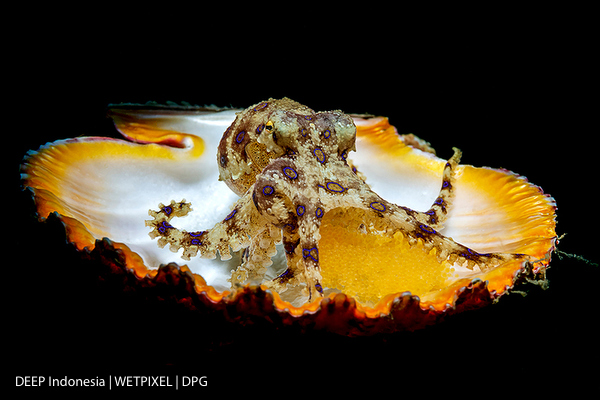
DPG and Wetpixel recently announced the results of the Underwater Competition Series, one of the world’s largest and most-prestigious underwater imaging contests. As always, we were blown away by the winning images and thrilled to give back to the environment by donating 15% of the profits to marine conservation organizations.
However, there has been some concern that some of the images awarded showed physical manipulation of the subject. The rules of the competition explicitly forbid such behavior: “Images in which the subject has been moved into a position or environment in which they are not normally found are not allowed.”
The first image in question is Yung-Sen Wu’s “Best of Show” winner from the DEEP Indonesia competition, which captured a blue-ring octopus with some eggs on an empty shell. There is no doubt that this represents unique behavior but the issue remains as to whether the “subject has been moved into a position” in order to capture it .
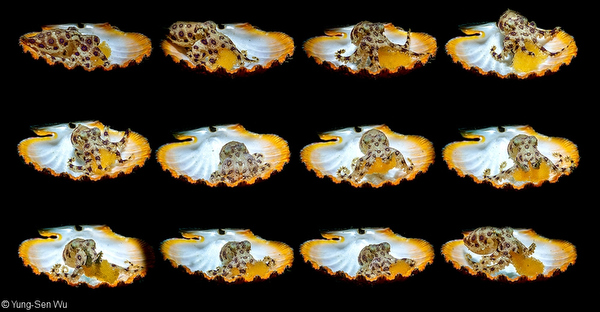
To reach a conclusion, we firstly contacted the photographer to request his RAW files and the sequence of shots leading up to the final image, and to tell the story behind the shot. The images he provided do not show any manipulation of the octopus. Yung-Sen vehemently denies that the octopus was moved or harassed in order to capture the images.
He explained to us that he found the blue-ring octopus in Lembeh at a depth of almost 90 feet in a crack between some rocks. He assumed it was aerating its eggs on top of the shell. He used a Retra Light Shaping Device to make the composition cleaner by removing the distracting background.
In the light of the controversy the image generated, we also reached out to a wide variety of scientists, underwater photographers and folks with extensive experience of Lembeh and blue ring octopus behavior. Inevitably, this resulted in a wide range of opinions. In spite of this, there is no actual evidence of physical manipulation. Many people have attempted to interpret the animal’s behavior but no one has produced any definitive evidence that the photograph was staged.
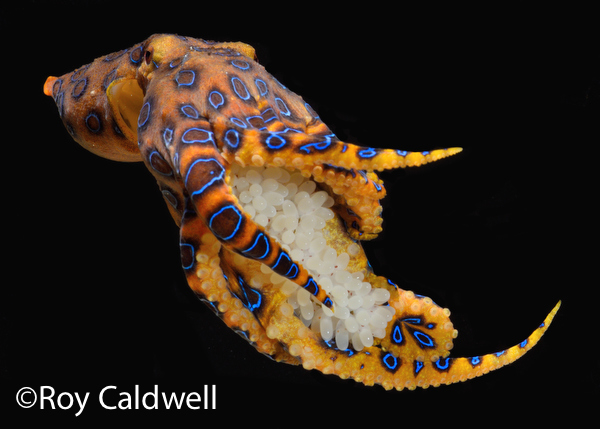
As an aside, our investigations suggest that the behavior depicted is actually showing the octopus feeding on the eggs, rather that aerating them. The eggs do not seem to be from a blue ring octopus.
On balance, there is no definitive evidence that the octopus was “moved into a position or environment in which they are not normally found.” Hence, the award should stand.
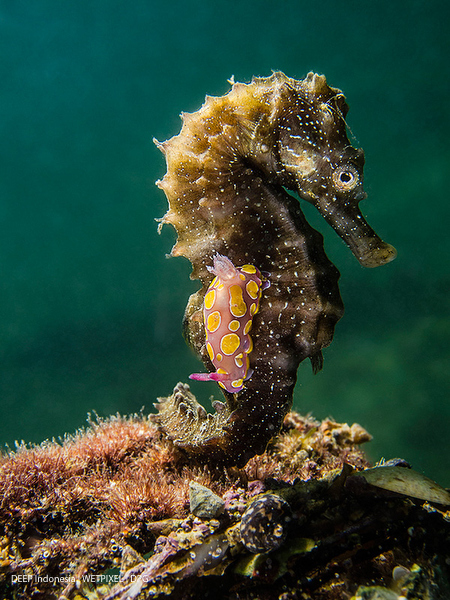
Similar concerns have also been raised about Francesco Pacienza’s Gold-winning image in the Compact Cameras category. One again, we reached out to a number of experts. Their opinion was definitive:
“Nudibranchs crawling over seahorses is something that definitely happens. As seahorses are very sedentary and don’t move much, often a nudibranch will crawl over them to get from point A to point B. I’ve seen it numerous times.”
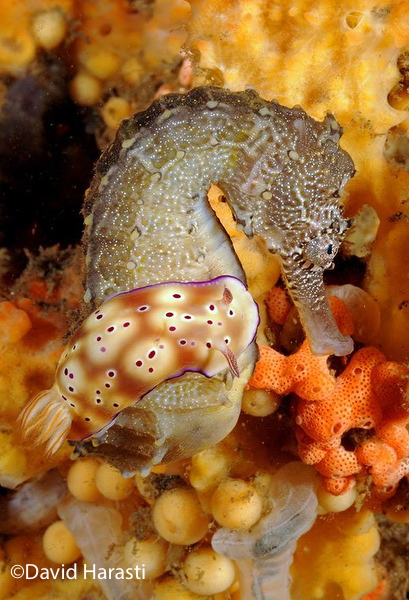
We have even been sent images of seahorses with nudibranch egg spirals on them:
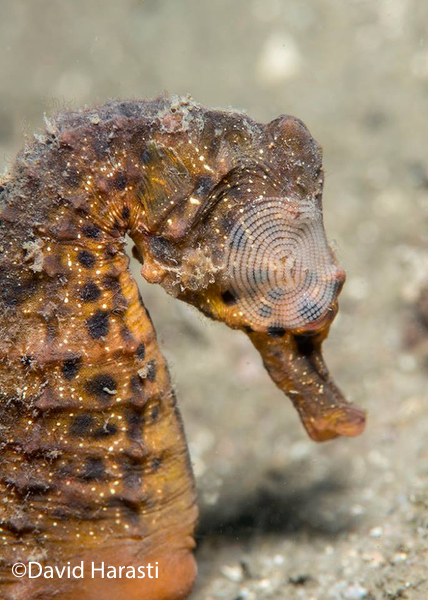
Addressing the question of manipulation, the photographer pointed out that, “Both subjects do not have evident signs of stress: The nudibranch has an open branchial tuft and extensive rhinophores; the seahorse, a female specimen during the mating period, is in its typical position.”
On a broader issue, images like this may encourage other photographers to behave in unethical ways and, it could be argued, normalizes images that show uncommon behaviors. Wetpixel and DivePhotoGuide have a responsibility to protect the underwater world, and we take this very seriously. However, this should be balanced by the simple fact that amazing, unpredictable things do happen in the oceans. By upholding the awards these images received, we should stress that we do so based on our fellow photographer’s account of how they captured the images.
We strongly encourage all underwater shooters to treat all subjects with respect, and consider the myriad ways in which manipulation can be avoided by using innovative techniques and creativity.
Congratulations again to all of the winners, and we look forward to celebrating the beauty—and mystery—of our oceans with future competitions.